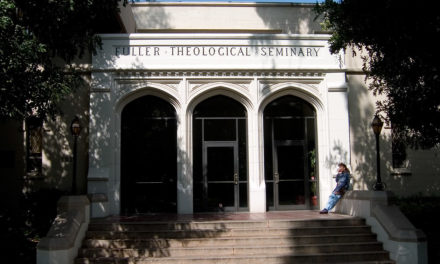In his 2002 book, The Marriage Problem, the late James Q. Wilson wrote the following about the difference between cohabitation and marriage: “Cohabitation means that two people agree to live together, sharing rooms, meals, and sex. Marriage means that two people promise to live together until they die, sharing rooms, meals, sex, and a permanent obligation to care for one’s spouse.”
Comparing cohabitation and marriage to two types of business transactions, he goes on to add, “In the first transaction, people will cooperate, at least until the cooperation becomes bothersome. In the second, people will not only cooperate, but they will also invest heavily in the enterprise knowing that their investment is protected.”
Recently, Dr. Brad Wilcox, the director of the Marriage Project at the University of Virginia and senior fellow at the Institute of Family Studies, along with his colleague Lyman Stone, wrote a piece in the Wall Street Journal that documents, contrary to popular wisdom, that cohabitation before marriage does not lead to long-term marital success. What they found backs Wilson’s assertions from twenty years ago.
After analyzing reports of marriage and divorce from more than 50,000 women in the U.S. government’s National Survey of Family Growth, they found that women who got married in their early-to-mid twenties without cohabitating first had a much higher rate of marital success.
They wrote, “In looking at the marital histories of thousands of women across the U.S., we found that women who cohabitated were 15% more likely to get divorced. Moreover, a Stanford study indicates the risk is especially high for women who cohabitated with someone besides their future husband. They were twice as likely to end up in divorce court.”
Common sense would bear this out. While both partners need to have a certain level of maturity before getting married, by starting out life “fresh” without bad memories of past relationships or previous cohabitations, they do not bring damaged emotions into marriage. While couples under the age of 20 may not have the maturity for marriage, couples in their early-to-mid-twenties do, without the emotional baggage that can cripple a marriage.
One of the key factors, in my view, goes back to what James Q. Wilson wrote. When one enters a relationship with the mindset that it is a promise, a contract per se, between two people to remain together through “better or worse, until death do us part,” there is a permanence that does not come with cohabitation – where one of the parties can simply move out with no obligation to the other.
But, there is also another key, and even more important, factor: Faith.
Young women who choose not to cohabitate often make that choice based on faith-based reasons. It is that same faith that takes the marriage vow more seriously than it currently is in our culture.
Research bears this fact out. A Harvard School of Public Health study found that couples who regularly attend church services are about 30-50 percent less likely to divorce.
Why does faith and church attendance, and the corresponding respect for the institution of marriage and discouragement of cohabitation before marriage, play such a critical role in keeping couples together? The Harvard study surmises it is because religious teachings are sacred, the important bond is created in the marriage vows, and attending religious services reinforces that bond.
Religious teachings across all faiths discourage divorce and place a strong emphasis on love and putting the needs of others above one’s own – something that cohabitation – which is often emotionally and physically driven – does not do. Cohabitation is just simply another arrangement to meet one’s perceived needs for sex and companionship.
As James Q. Wilson wrote in his essay, “Why We Don’t Marry”: “Marriage was once a sacrament, then it became a contract, and now it is an arrangement. Once religion provided the sacrament, then the law enforced the contract, and now personal preferences determine the arrangement.”
He adds, “The right way for a culture to restore itself is for it to be rebuilt, not from the top down by government policies, but from the bottom up by personal decisions. On the side of that effort, we can find churches – or at least many of them – and the common experience of adults that the essence of marriage is not sex, or money, or even children: it is commitment.”
Thus, many of these young women in their early-to-mid-twenties have learned the secret to marital success: faith, coupled with the commitment that comes with that faith. That is a lesson for all of us to learn from – regardless of age and relationship status. It is also a lesson that will bring about the restoration of not just marriages, but families, and society.
Timothy S. Goeglein is the vice president of government and external relations for Focus on the Family, Washington DC
Photo from Shutterstock.






